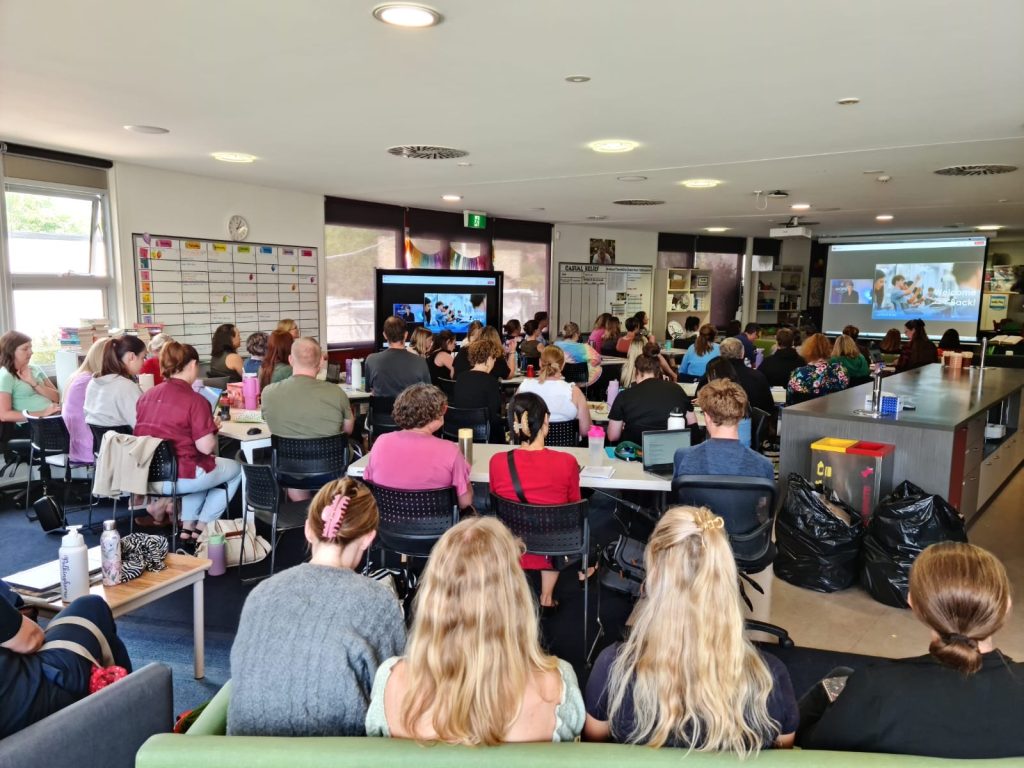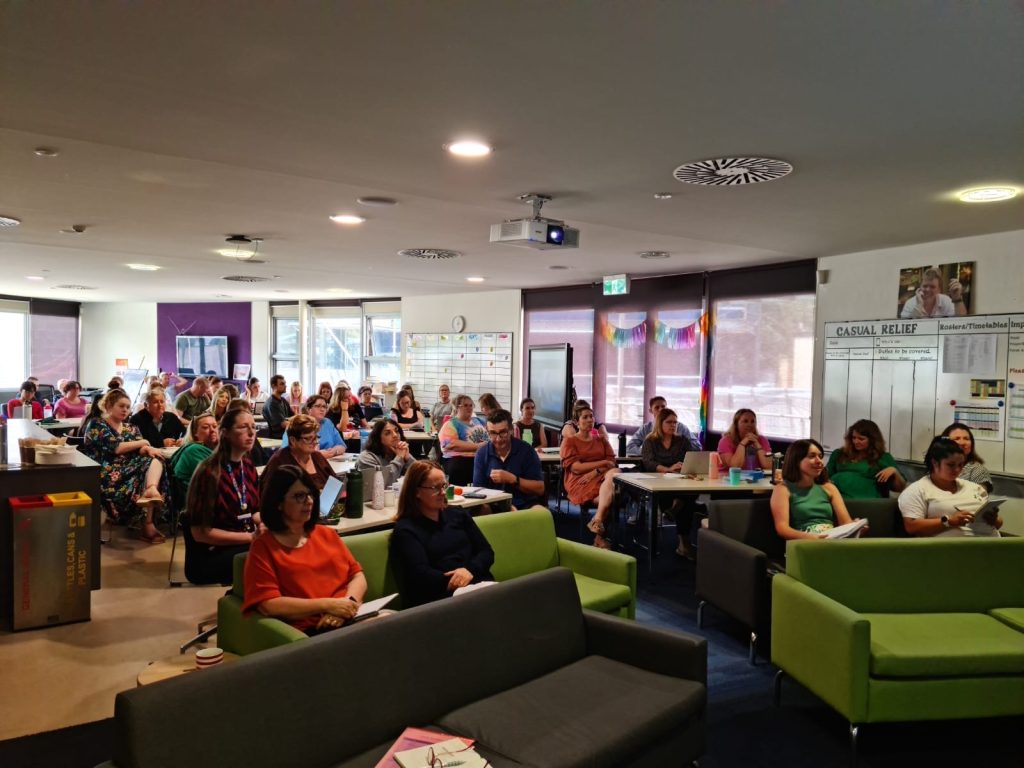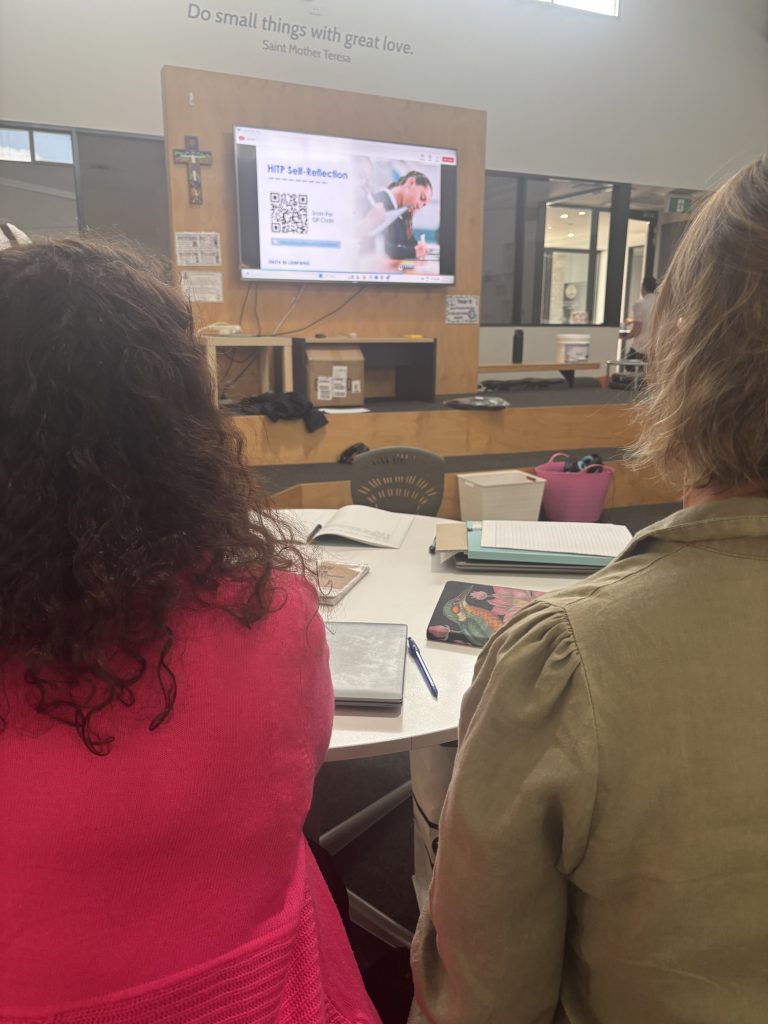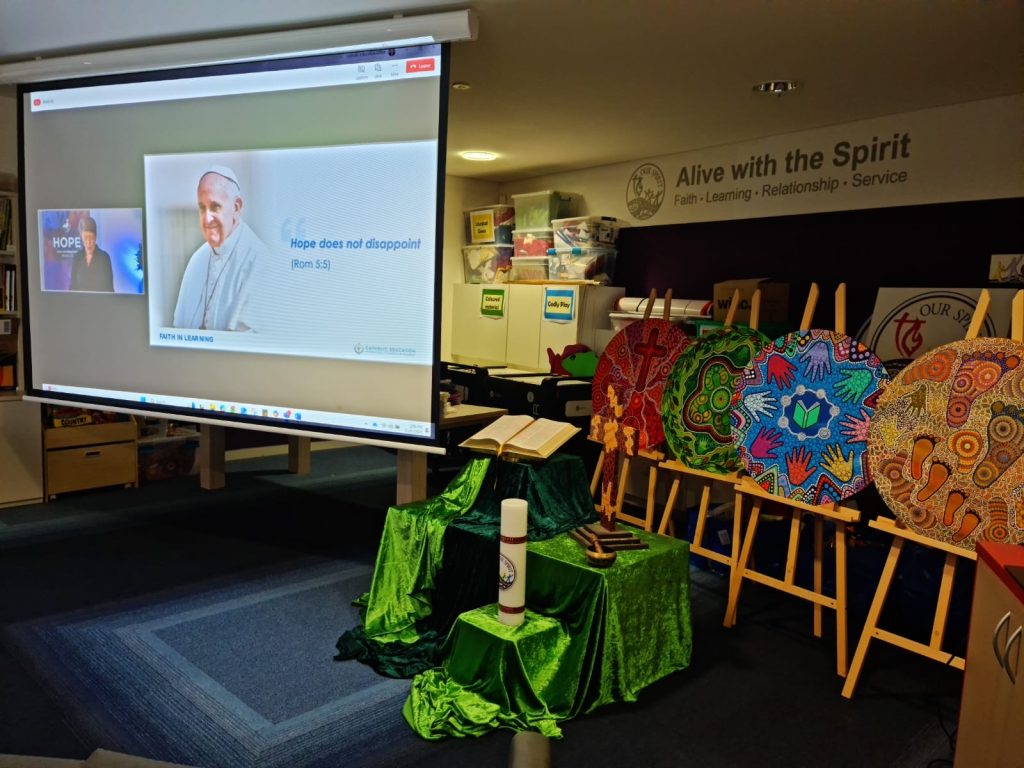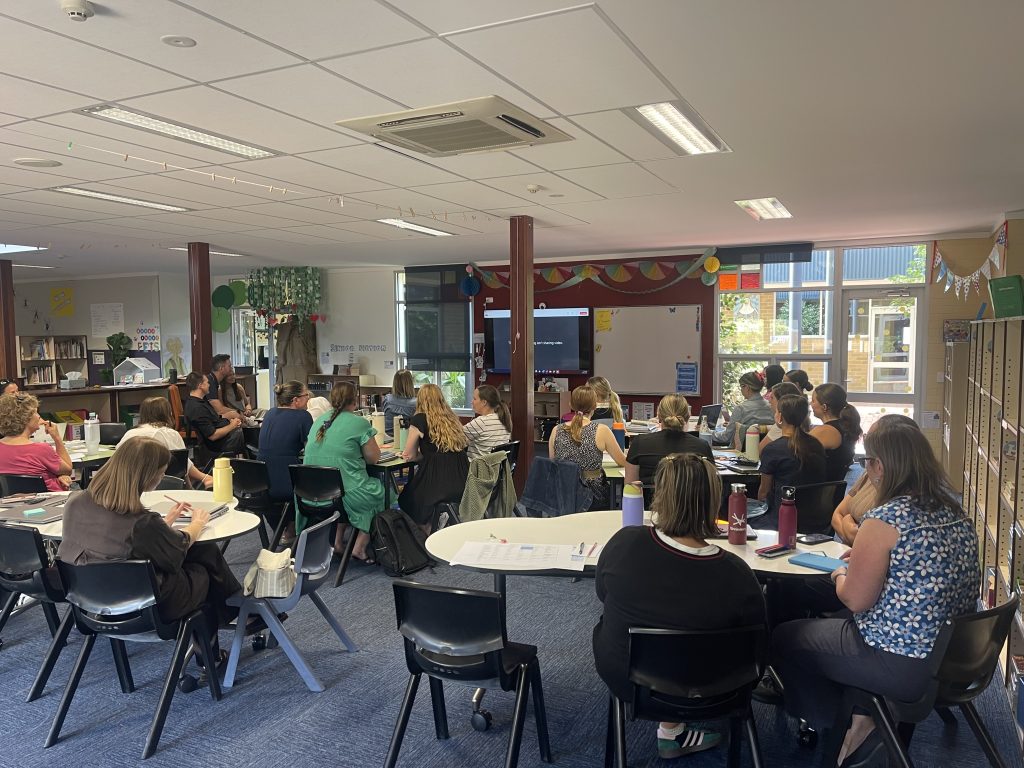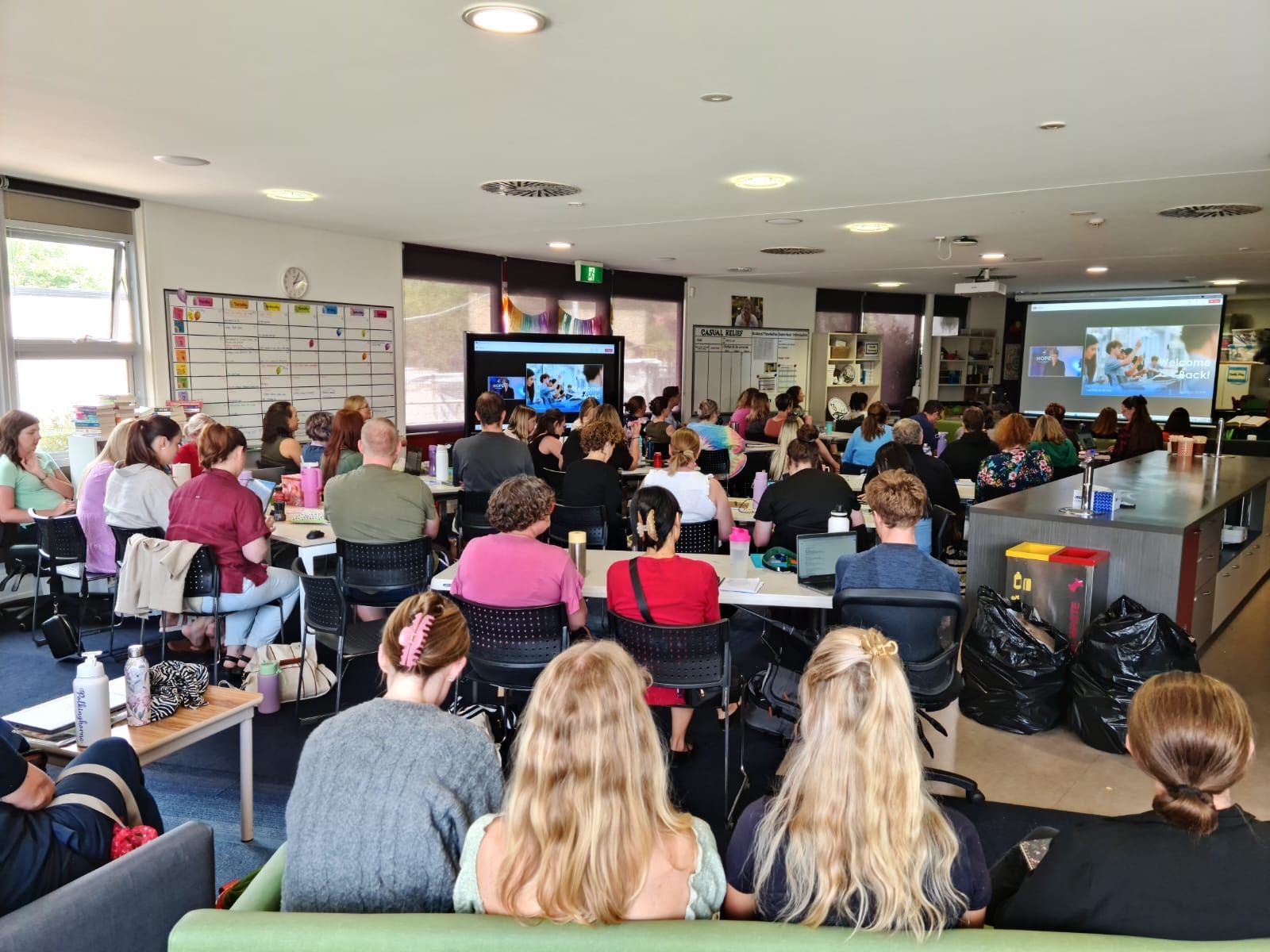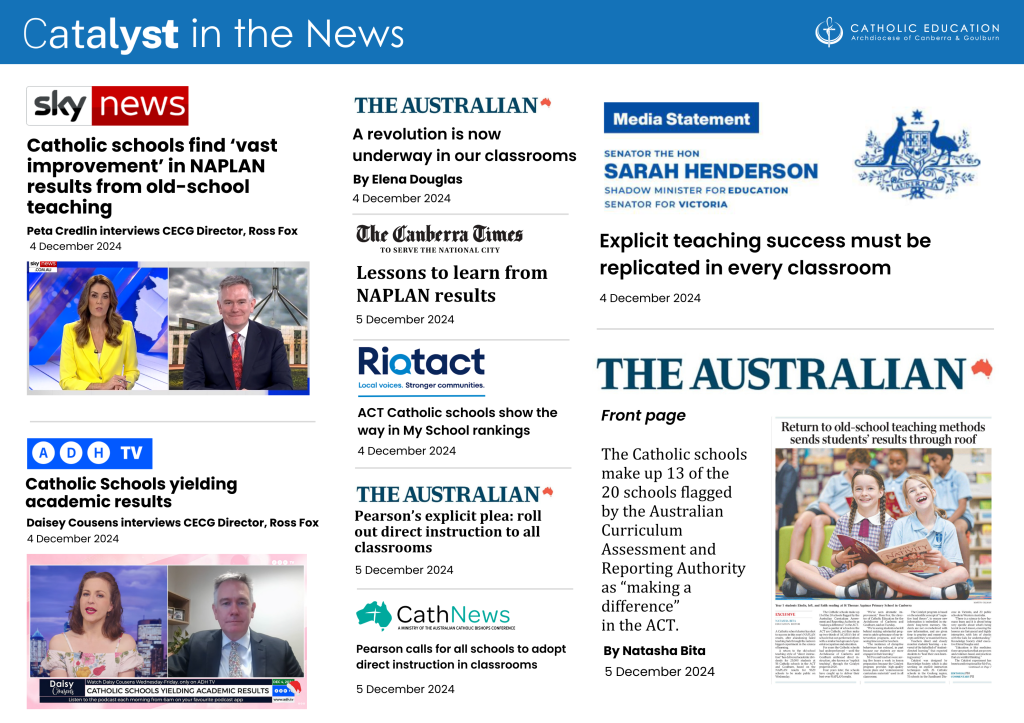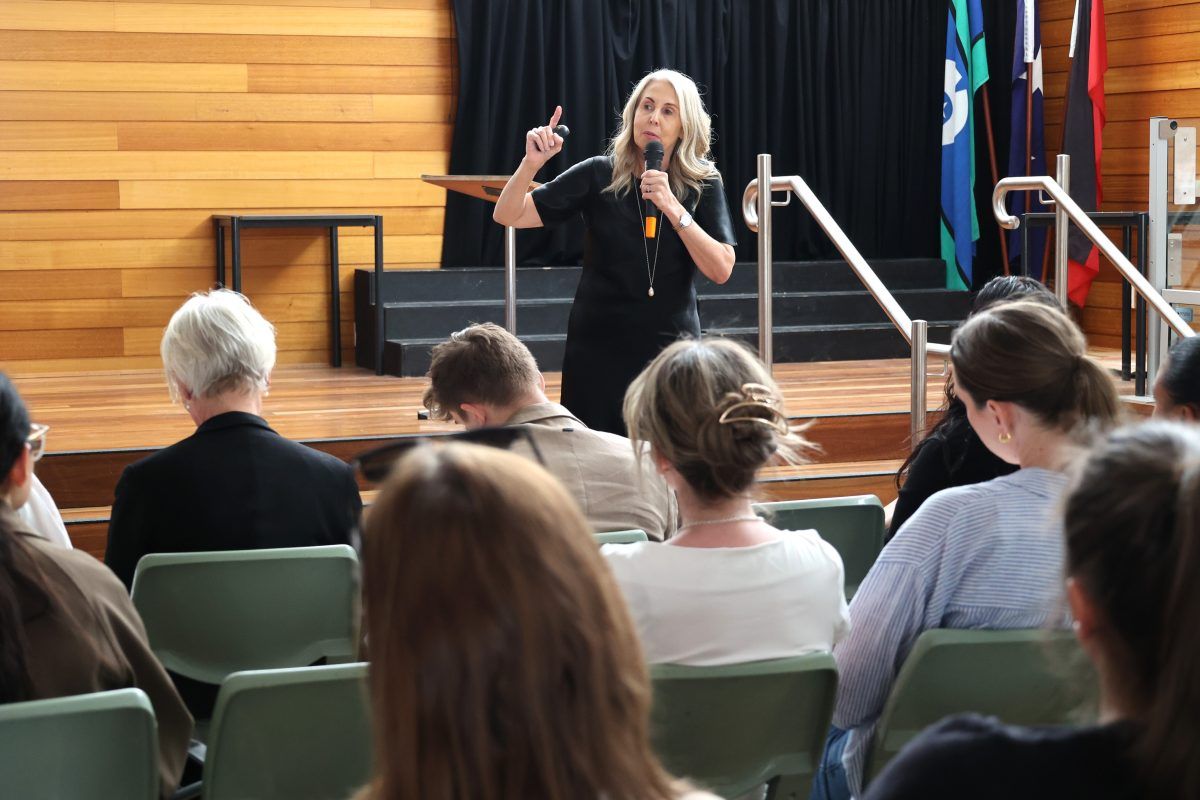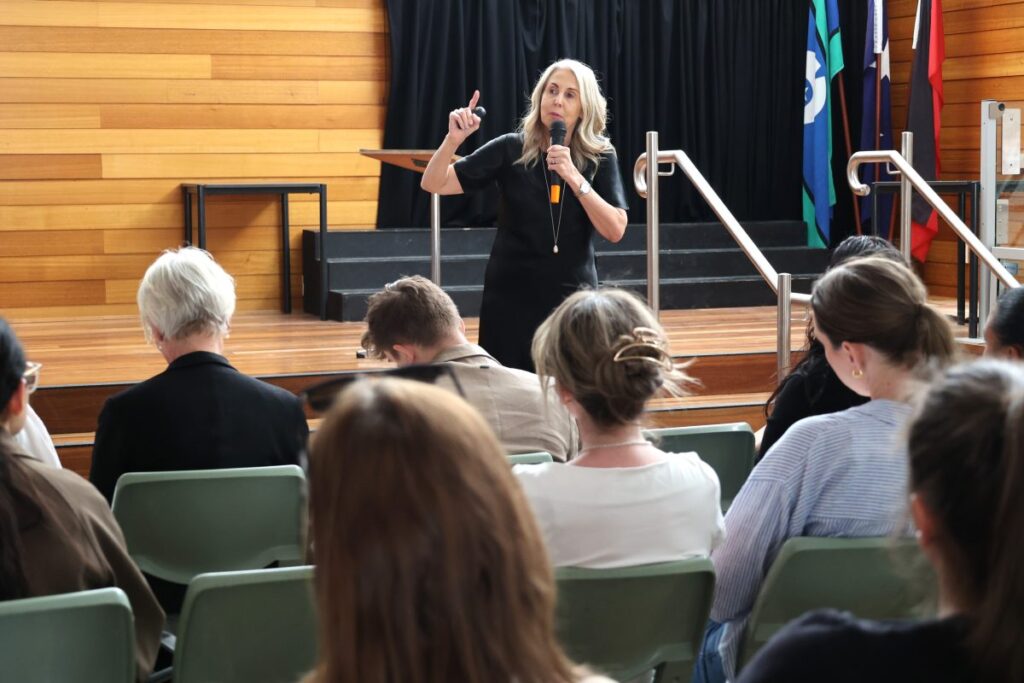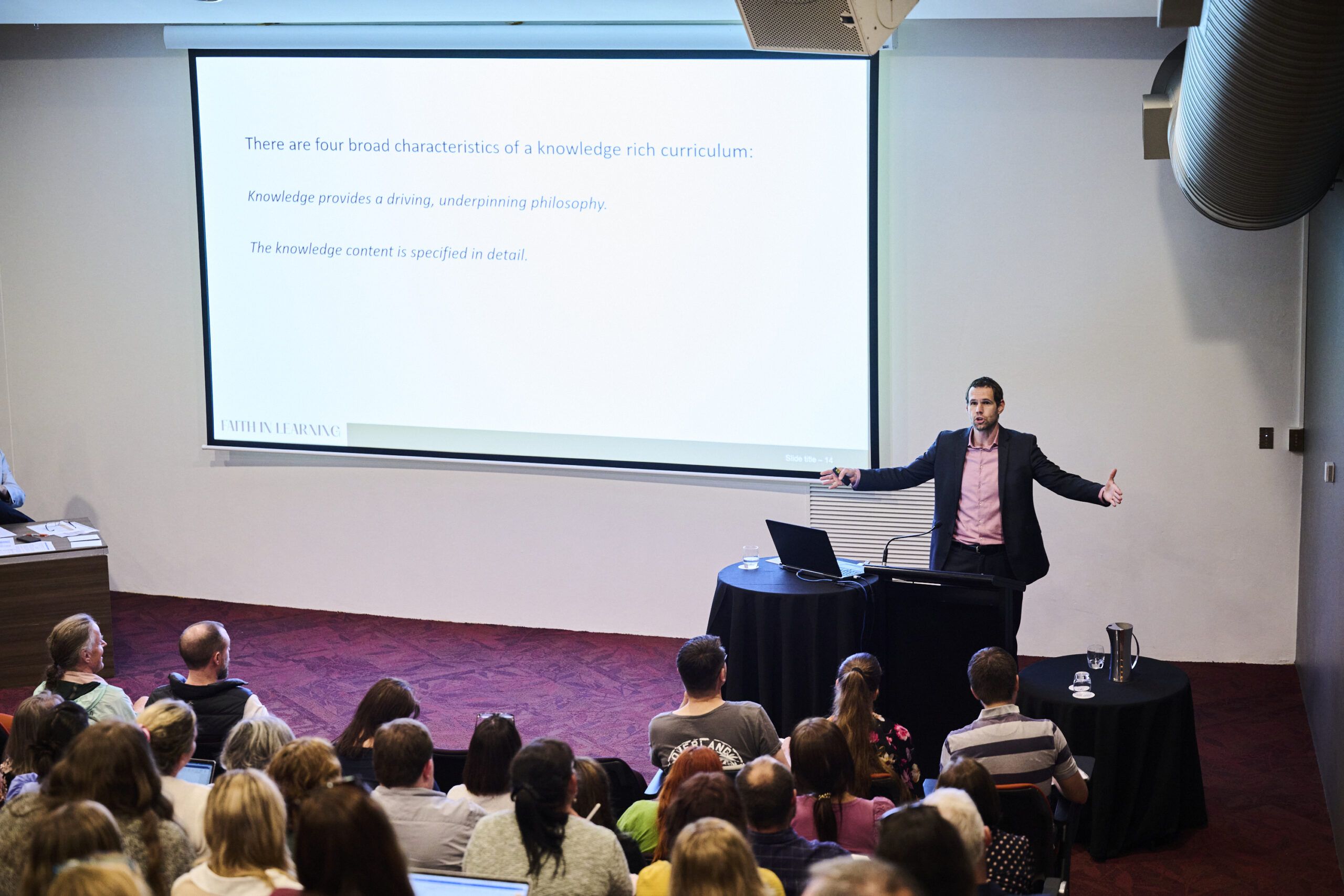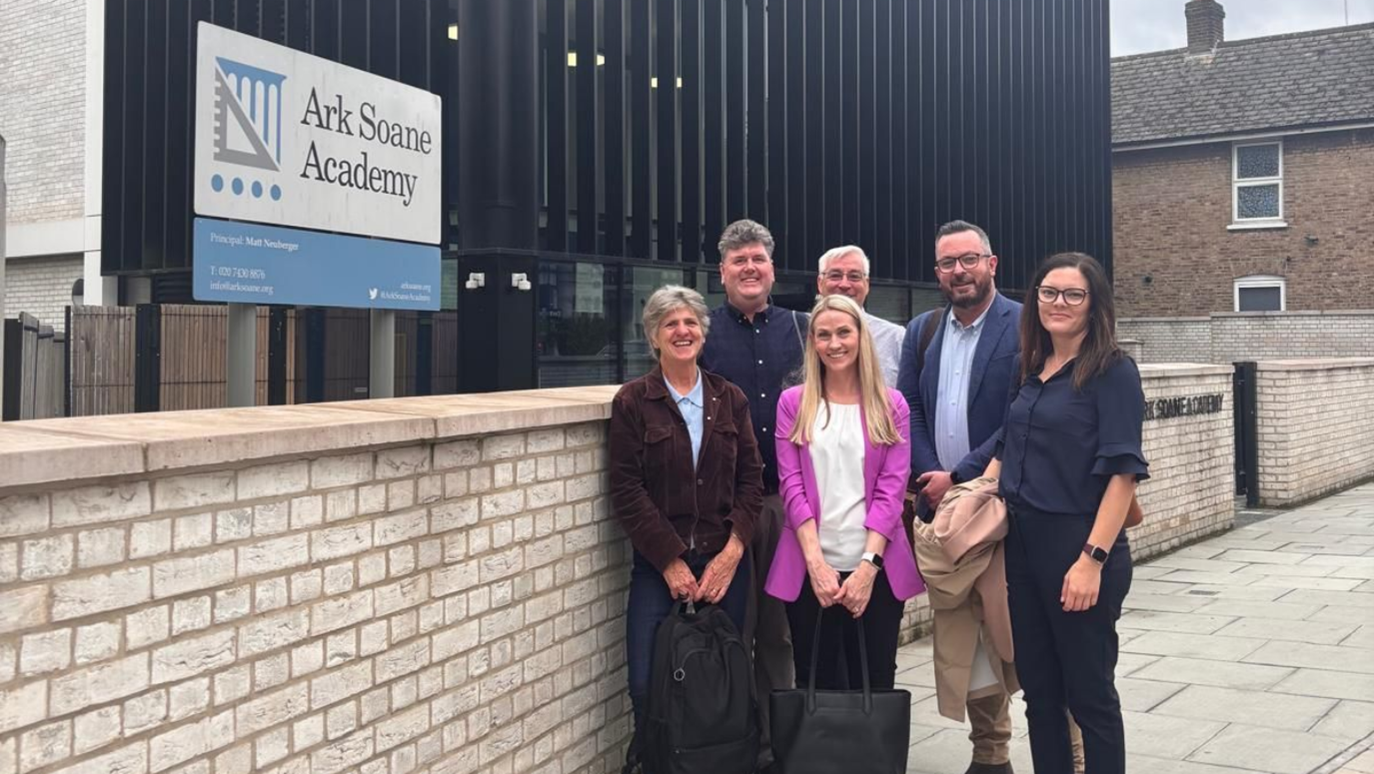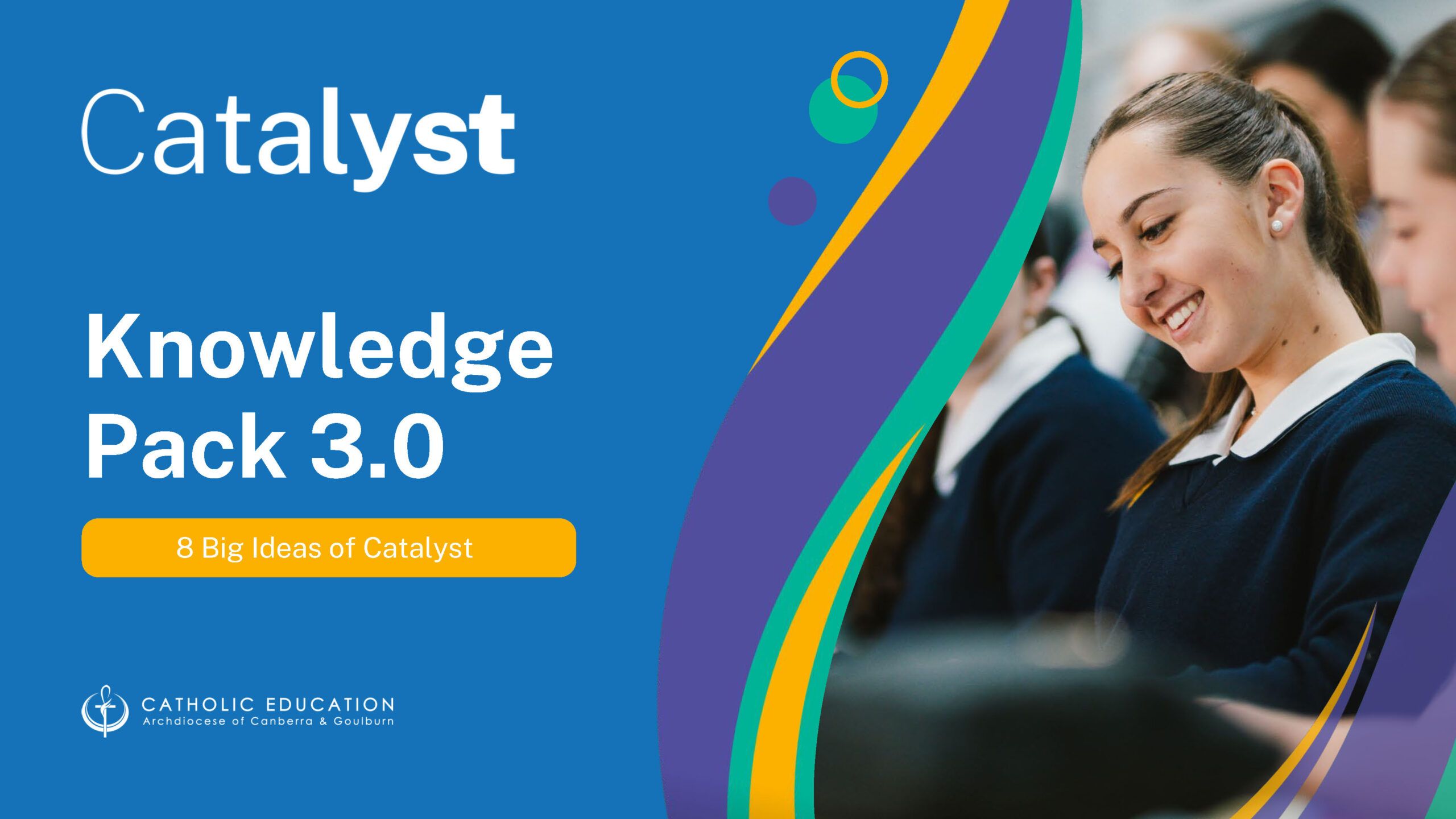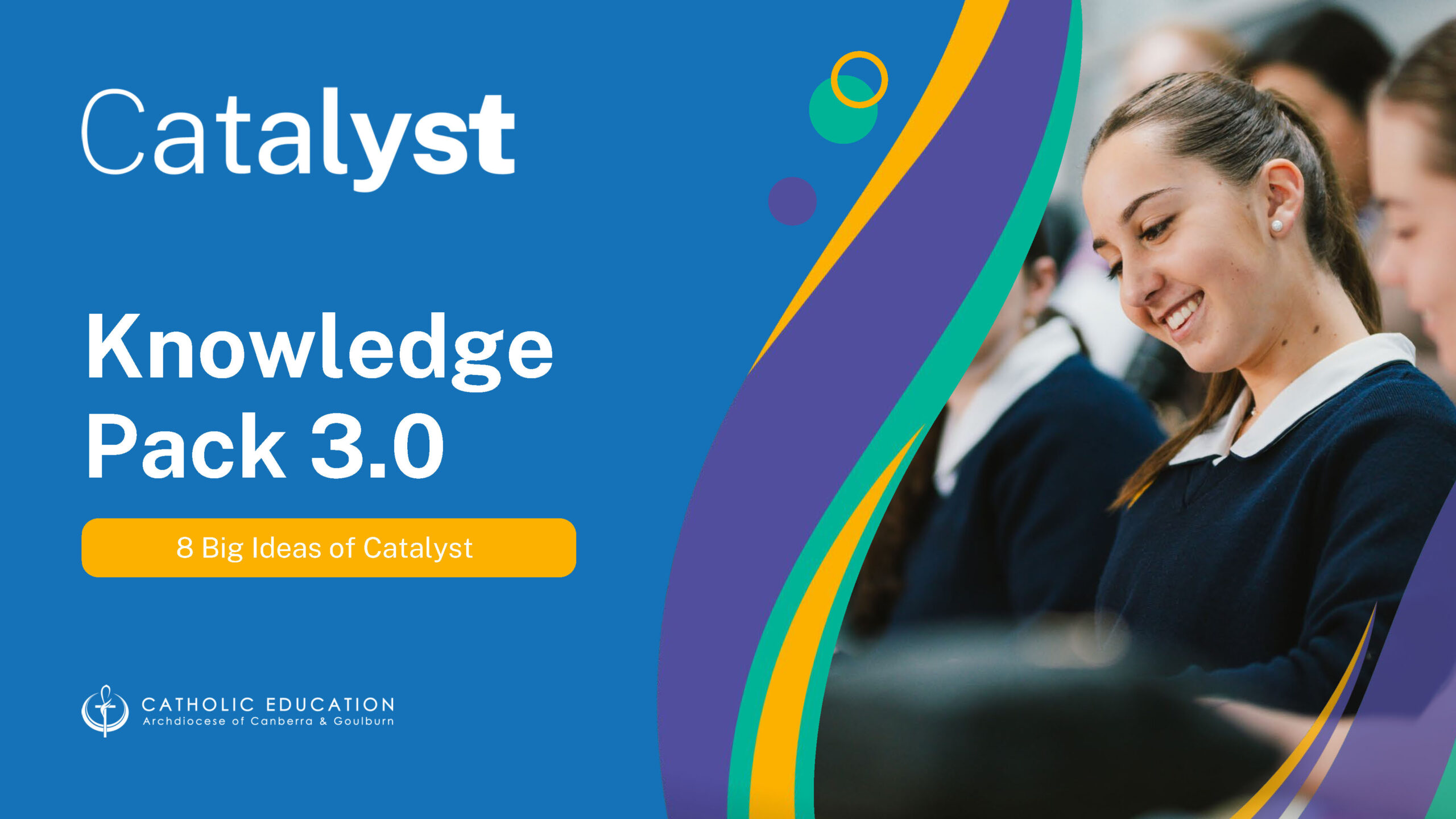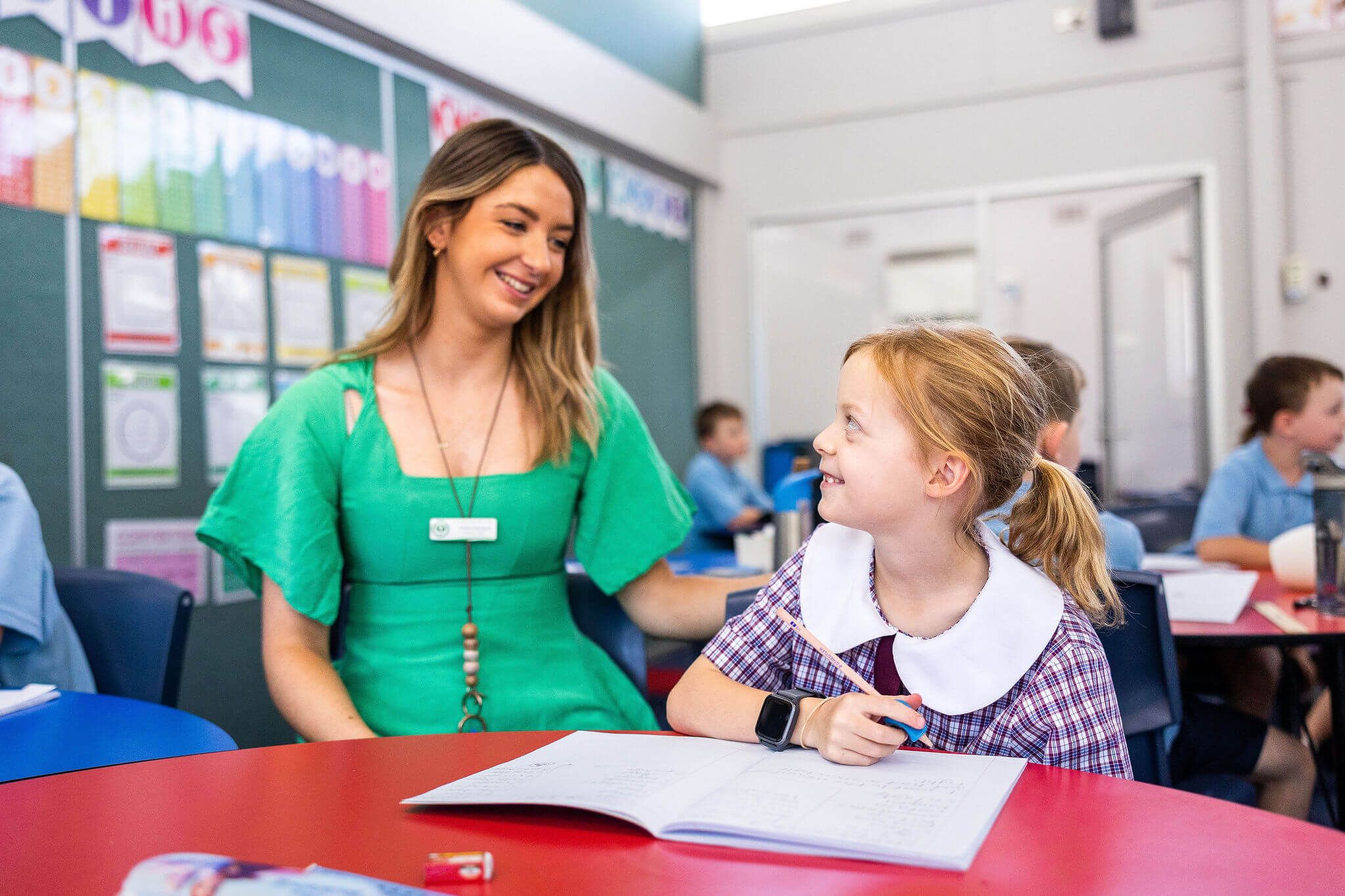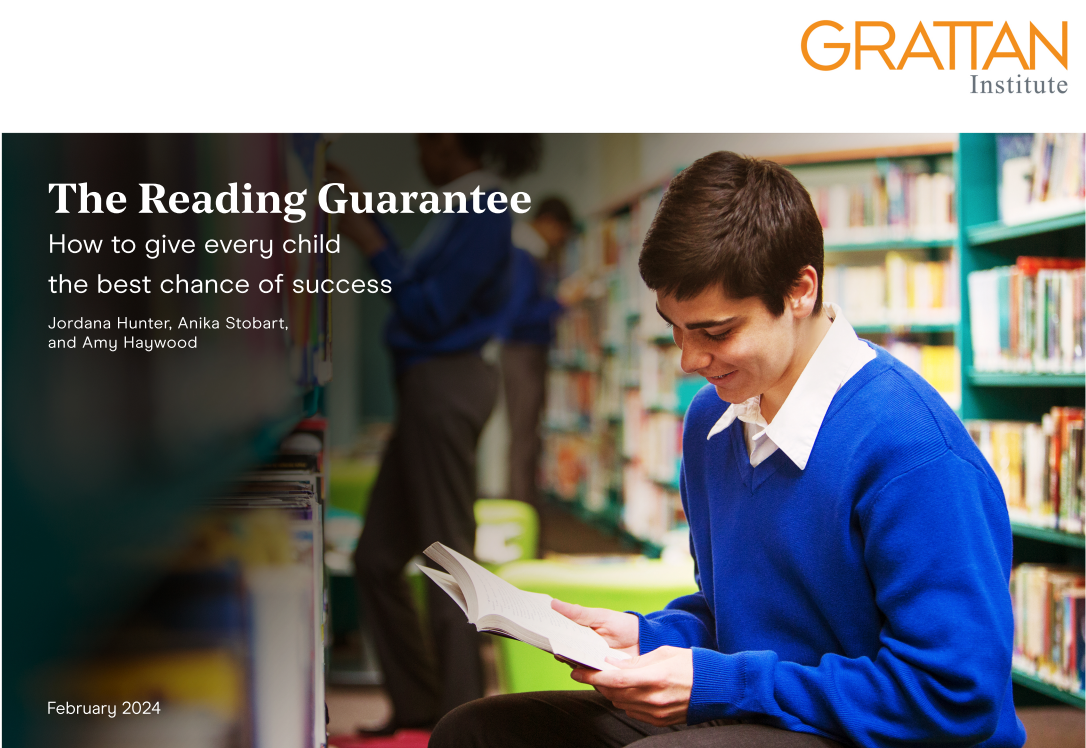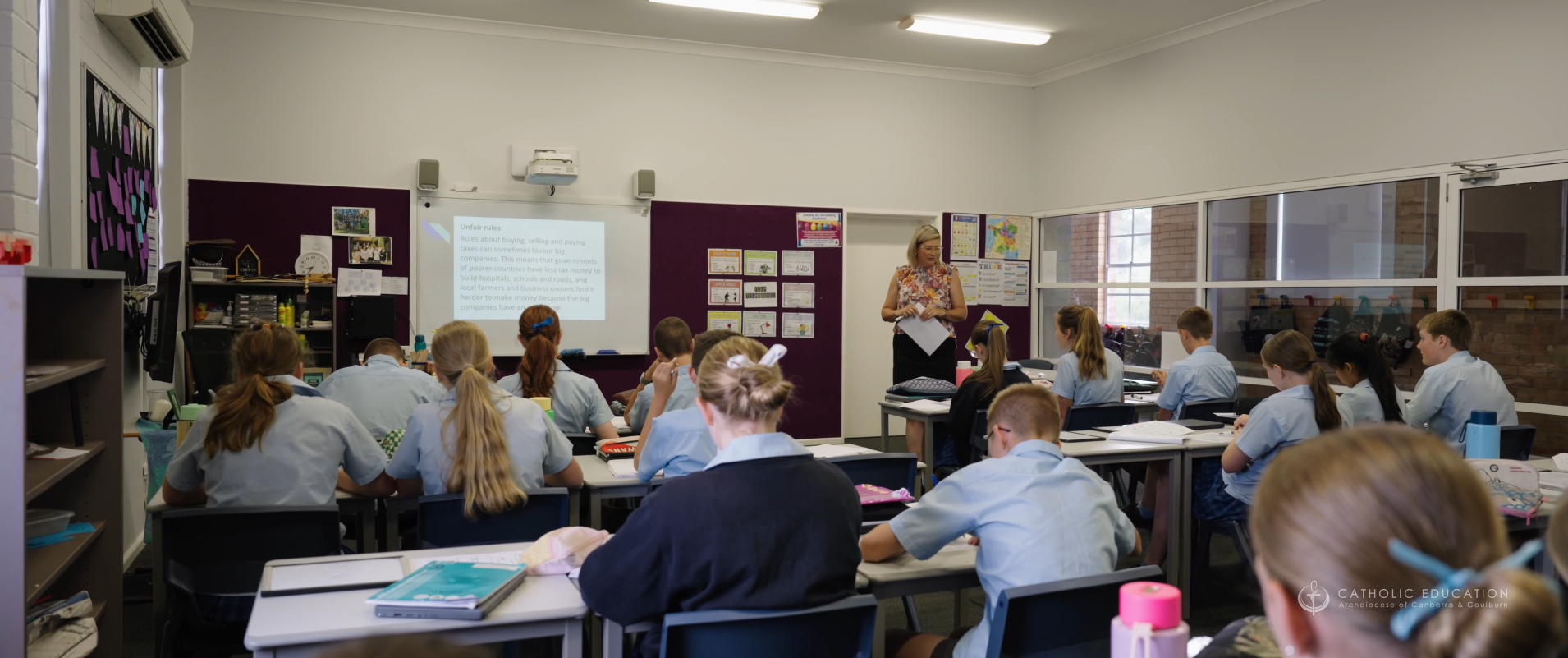Defining the Journey for 2025 – System Day
Catholic Archdiocese Canberra and Goulburn Education Limited have kicked off 2025 with System Day, bringing together all staff members online from across the system to reinforce and strengthen the journey with Mission and Learning. With a continuing focus on deepening teacher’s knowledge of how students learn and how best to incorporate that learning into their classroom practice to transform student lives through learning.
With over 2,000 Principals, teachers and support staff dialing in online from their school, in groups and individually, with the opportunity to engage, learn and reflect. Guided by leadership and educational experts, recognition was given to the evidence and impact of Catalyst to date, with a focus on practical strategies and techniques that educators can adopt to enhance student learning.
Guided by Pope Francis’s theme for the Year of Jubilee: Pilgrims of Hope, Archbishop Christopher Prowse and Interim Executive Director Pam Betts reinforced the Mission and direction of Catholic Archdiocese Canberra and Goulburn Education Limited for 2025, with emphasis on the role of faith, leadership, and hope in shaping the future of learning.
“As Catholic educators, we are preparing our students not just for academic success but for lives of purpose, integrity, and faith.
Through Catalyst, we are equipping our schools with the tools and strategies needed to foster this hope-filled future, ensuring that every student has the opportunity to thrive.”
Pam Betts, Interim Executive Director
Their addresses underscored the importance of collaboration and a shared purpose across the Archdiocese, inspiring educators to continue making a meaningful impact in their schools and communities.
Event Highlights
Guided by esteemed MC Genevieve Jacobs AM, and featuring thought-provoking keynotes from Natalie Wexler and Professor Daniel Willingham, System Day 2025 was an opportunity to begin the year inspired and empowered to continue to improve student learning across the Archdiocese.

Closing the Knowledge Gap with Natalie Wexler
Education writer and author Natalie Wexler delivered an engaging session to deliver content-rich learning to improve literacy outcomes.
With insights grounded in the Science of Reading, Wexler explained that improving literacy requires a change in how we approach comprehension and writing. She challenged traditional reading comprehension methods, advocating for a shift from isolated skill drills to deep, knowledge-building instruction. With a clear path forward, she highlighted the promising results from our schools with implementing the Catalyst approach, demonstrating the impact of High Impact Teaching Practice (HITP) on improved student learning.

Developing Independent Learners with Professor Daniel Willingham
Cognitive scientist, Professor Daniel Willingham, explored how educators can empower students to take ownership of their learning. He outlined research-backed strategies for building independent study habits, including effective note-taking, managing distractions, and committing key concepts to memory.
Willingham emphasised the need for Explicit Instruction in these skills, ensuring that students, as they grow older, become independent learners who can avoid distraction, commit content to memory, take notes, judge when they have studied enough, avoid procrastination, and more. He shared tools to create students responsible for their own development, to ensure long-term academic success.
The Future of Learning is Bright
Teachers and staff closed the day affirmed with the journey to date through Catalyst and motivated to continue the momentum forward to refine their practice to positively impact student learning. The panel of speakers also reinforced the critical role of Catalyst’s evidence-based approach, highlighting its value not just for our system, but as a model for others to learn from both nationally and internationally.
Teachers undertook a HITP Survey to reflect and evaluate their learning through Catalyst. With over 1500 responses it was clear that teachers value the system strategy, resources, support and professional learning.
- 88.6% HITP part of my everyday practice
- 92.4% believe HITP is worth effort and focus
- 79.3% believe HITP has increased student engagement and learning
- 75.2% HITP has improved my teaching and I wouldn’t go back
- 83.3% would continue using HITP even if it wasn’t a formal requirement
System Day has laid the groundwork for 2025 to continue to foster Faith in Learning through a united system that is stronger together.
Learn more about the Catalyst Approach
Explore our Resources
Learn more about our System
